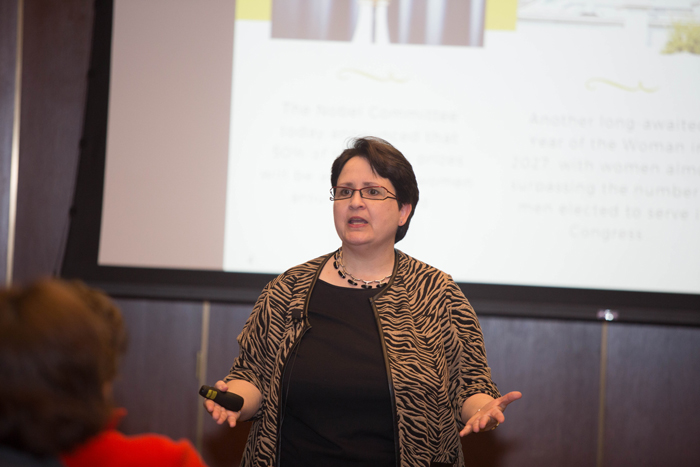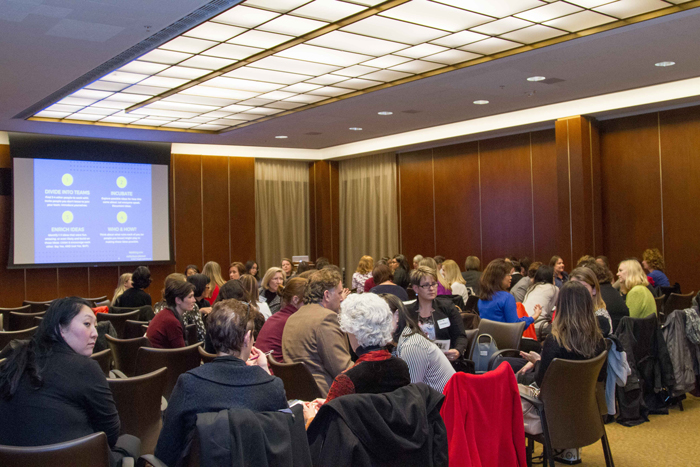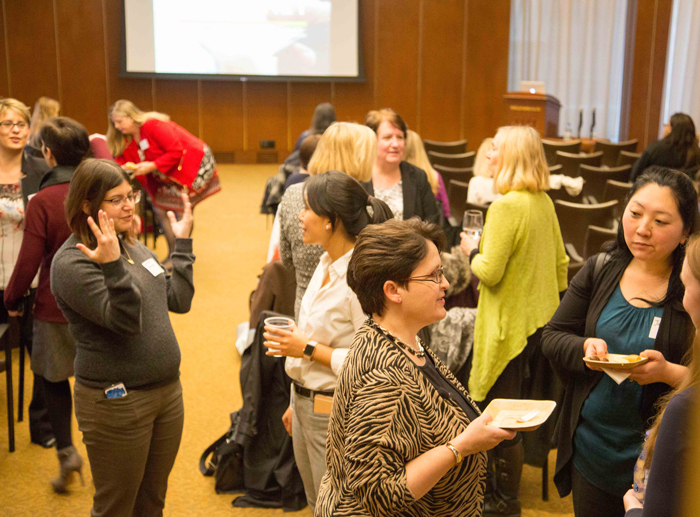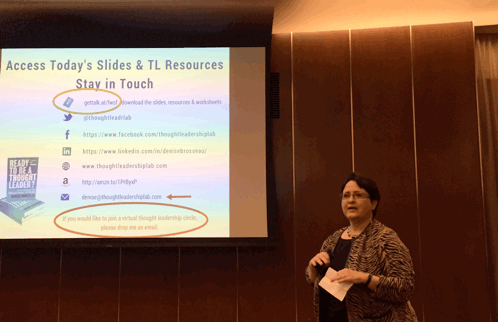By Kathleen Velasquez

On March 7th, the day before International Women’s Day, FWSF partnered with Wells Fargo for an event on Thought Leadership, featuring Denise Brosseau as the speaker. Denise was introduced by Sue Bunnell, who extolled her professional accomplishments. Among them was co-founding the first women’s venture conference, Watermark, as well as Springboard Enterprises, which raised $7.4 billion for women entrepreneurs since its foundation in 2000. Denise not only teaches at the Stanford Graduate School of Business, but she also received the highest ratings from her students out of the entire faculty.
"Journeys are essential to health and happiness.” Denise heavily emphasized the allegory of a journey in order to create a better world, drawing from her experiences as a child when she stopped at every point of interest while traveling on road trips. Imagine a world ten years from now:
What would have to have happened to get to that point? Denise introduced the idea of back casting, which is the concept of imagining a positive outcome in the future and working back to imagine what needed to be done to arrive at that point.

Denise then tasked attendees to engage in a thought experiment. First, the attendees were to get into small groups of people who hadn’t met before. The group members took turns interviewing each other asking what their “superpower” - their strongest work-related skill or talent - was. Afterwards, a group member other than the interviewee would amplify that “superpower” to emphasize that talent.
This exercise would serve as an icebreaker for the second part of the thought experiment, which involved back casting the hypothetical world that Denise posited could happen in ten years. The group members would then incubate ideas on how to achieve some of the objectives that would create a better world for women, and to ensure that everyone in the group were able to contribute ideas. The next step was to come to a consensus on what the best ideas were and to build on those ideas as a collective. Lastly, each group member would be assigned a role based on their “superpower” in order to best put those ideas into practice.
Denise encouraged participants not to exhibit restraint in amplifying each other’s “superpowers” nor in formulating ideas. Attendees who participated in the experiment report that the amplification step raised their self-esteem, as well as leading to interesting discussion on how a diverse range of incredible professional women would address some of the issues of importance to them. The most important aspect, however, was asking women to consider what their role would be in creating a better world.

What is a thought leader, anyway? A thought leader is defined as someone who uses their knowledge and expertise to change the world, add their voice to community, industry, and at the national level, builds a tribe and joins with others to create that impact. Denise stated that she was an accidental thought leader, having been one of the very few women within high-growth entrepreneurial ventures. She initially did not understand how she got to that point, and set about writing a book as if she were back casting to her younger self on how she became a thought leader. She identified seven key steps to becoming a thought leader:
1. Find your driving passion
2. Build your ripples of influence
3. Activate your advocates
4. Take risks to push for change, and shut down your internal doubts and fears
5. Codify your lessons learned
6. Make yourself discoverable and visible
7. Incite (r)evolution!
Denise asked the audience to consider what causes matter to them, and what roles they can play to support that cause. She shared an example from her own experiences: noticing that women had great ideas but were not getting VC funding and so she made it her personal mission to change the fundraising landscape. She also shared her role models, earning her admiration due to sparking real social change; Rosa Parks, Rachel Carson, Eleanor Roosevelt, and Sheryl Sandberg.
Denise encouraged the attendees to imagine better futures and to change the world, but to remember to do so as a group. Changing a small part of the world still counts for a meaningful impact, whether it is within a company, organization, or community.
She ended the event by sharing her mantra: “If you’re not living on the edge, you’re taking up too much room.”

If you are interested in reviewing the materials from the event, go to gettalk.at/fwsf to obtain the slides and other information about Denise’s work. You can also join a virtual thought leadership circle organized by Denise by emailing her at denise@thoughtleadershiplab.com. FWSF would like to thank Denise for generously donating her time to empower and educate the community.